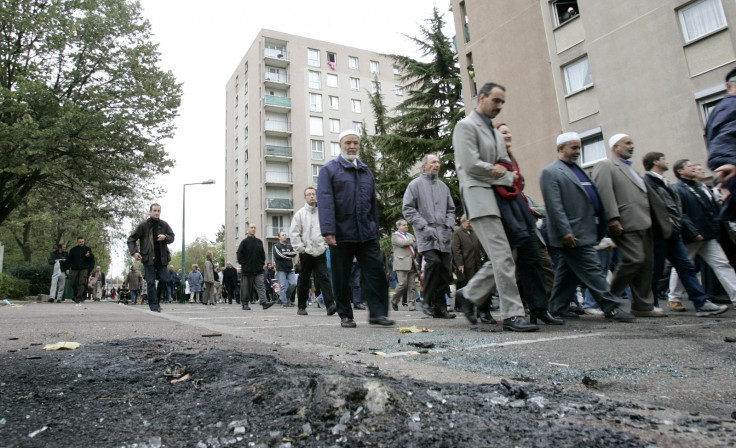Paris Mayor Anne Hidalgo outlines €10bn housing plan to tackle Islamic extremism

The Mayor of Paris has announced a €10bn (£7.3bn) plan to fight against the threat posed by Islamic fundamentalism by outlining a series of measures promoting social inclusion and better housing in the French capital.
Anne Hidalgo said the plan was to improve social housing, prisons and schools to tackle the sort of anti-social climate where radicalism can breed.
"I recall that both Kouachi brothers Charlie Hebdo bombers were, for example, homeless in Paris, in the 19th district," Hidalgo said.
The Kouachi brothers were raised and radicalised in an area of rundown estates on the outskirts of Paris. The younger brother, Chérif Kouachi, became marginalised at the age of 18 after having been moved between care homes during his childhood. He lived like a homeless person in Paris, from one mattress to the next.
Over the term in office, the Mayor will invest €10bn to make housing accessible to the greatest possible number of people, develop public transport and allow everyone to "actually access employment and services".
"It is an everyday solidarity that we want to deploy for all and in all areas of Paris. Our ambition is exactly the opposite of the 'no-go zones' totally fantasised by some," she said in reference to Fox News's incorrect reporting that there were areas in Paris where non-Muslims are unwelcome and sharia law holds sway.
"In Paris, we strive to fight against all forms of relegation and geographical, ethnic and social segregation".
Hidalgo added: "This is the price to pay for our century, [which is] uncertain but promising, can be that of democracy and progress."
Renovating the French banlieues
In her speech, Hidalgo also outlined her plans to renovate what she called the"quartiers populaires" – a reference to the French banlieues which are often rundown estates on the outskirts of cities, where unemployment is over twice the national rate.
For young delinquents of Muslim background in the French banlieues radicalisation is not unusual.
Amédy Coulibaly, who joined the Kouachis in January's terrorist attacks, killing a police officer and four hostages in a kosher supermarket, was born in France to parents from Mali. He grew up on a notorious housing estate, La Grande-Borne, in Grigny, south of Paris, described by campaigners as "one of the most difficult estates in France".
Meanwhile, the scheme will also include the multiplication of places in nurseries, and the creation of accessible cultural and sports facilities.
Fighting radicalisation in prison
"We have also strengthened the partnership between Parisian prisons - where processes of radicalisation are witnessed in France - and services responsible for the re-integration of prisoners to anticipate youth released from prison are not left to fend for themselves and therefore clawed back by radical movements," she said.
For instance, Coulibaly met Chérif Kouachi inside the notorious Fleury-Mérogis prison south of Paris where they became close during seven months on the same wing. There, they found not only friendship but a mentor who radicalised them, Djamel Beghal.
Educating three-year-olds against discrimination
The French capital will also launch bi-weekly school workshops held by associations in schools for children above three years old, "to be made aware of the dangers of intolerance and discrimination".
Other measures include the opening of schools on Saturday mornings to help prevent students dropping out, which Hidalgo said was linked to the radicalisation process. She also said there would be a doubling of the number of young people participating in civic service and a need to "restore the lines of communication" between communities.
© Copyright IBTimes 2025. All rights reserved.






















